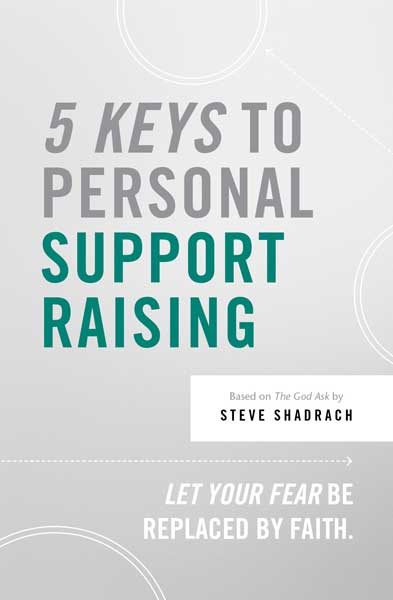
“Many hands make light work.”
Dr. Bill Bright, founder of Campus Crusade for Christ (Cru), remembered this teaching from his mother as he was struggling to raise all the funds for the organization in the 1950’s.
It was at that point he ushered in a new paradigm of funding his organization.
No longer would the annual budget be limited to what one or a few people could raise.
No longer was an annual budget the determining factor of how many more campus ministers or missionaries could join their ranks.
By empowering all of the staff to mobilize the ministry partners and finances to fund their payroll and expenses, the ministry could grow exponentially!
This decentralized model of fundraising, sometimes called deputized fundraising, that Dr. Bright introduced to Cru soon became the common model of thousands of other ministries and has certainly worked for tens of thousands of Cru staff in over 100 countries.
But it did not start with Cru, as Jesus sent his 72 disciples out to the towns and villages reliant upon the relationships they would develop (Luke 10), and pastors and ministers of the Gospel for centuries worldwide have lived off of the gracious gifts of others.
What Dr. Bright discovered was that with many hands doing the work of fundraising a ministry could scale to the level that God blesses them with qualified staff.
Bill Bright is now with the Lord, but I doubt Cru’s budget decreased any after his passing. Ministries that rely upon a well-known leader or charismatic personality to raise all of their funds are simply not sustainable. So much is dependent upon that individual, that ministries are at a loss when that person passes or has a falling out from ministry.
I’m sure you know of some ministries that carry the name of their founder, but I bet you’d be harder pressed to name many ministries that are still thriving after the death of their namesake.
A decentralized ministry can also more easily survive the ups and downs of the economy.
Steve Douglas, the current President of Cru, said that during economic downturns, ministries that rely upon general donations often see a decrease in giving, but ministries with decentralized funding are insulated because donors aren’t giving to an entity, but to an individual they know. They might drop their donation to some big non-profit, but they wouldn’t want to stop their monthly support of Sally, the girl they saw grow up in their church.
There is also great relational benefit in empowering staff to raise funds.
Fundraising done right is mobilization and partnership.
It is the way God brings the body of Christ together to work in harmony with each other. He calls some to go and some to send.
Paul saw fundraising as not just a way to involve the body of believers, but as a way for them to receive the blessings involved in the Great Commission.
In Philippians 4, Paul tells them,
“Yet it was good of you to share in my troubles…Not that I desire your gifts; what I desire is that more be credited to your account. [The gifts you sent] are a fragrant offering, an acceptable sacrifice, pleasing to God.”
This interdependency of ministers and senders is God’s idea.
For every staff person raising support, at least 60 believers have been mobilized to become financial partners in that ministry endeavor. Not only that, but 140 or more are being sent prayer letters and updates, and they are becoming more aware of what God is doing in His Kingdom.
For our ministry of 80 staff, we have about 5,000 monthly donors and 25,000 are being sent newsletters on a regular basis.
Relationships, interdependency in the body of Christ, and the multiplication of spiritual blessings are the most compelling reasons to me for a ministry to embrace a decentralized approach to fundraising.
Every believer, from every country and culture, is called to sacrificially give to God’s ministry. I cringe when I hear of well meaning businessmen or ministry leaders rationalizing how strategic it is to hire and pay non-Western workers, as the cost to employ an African or Asian minister is so inexpensive compared to an American missionary. Even then, I implore these ministries to embrace a decentralized approach because the principles of scalability, sustainability, and relational interdependency are still evident.
Tens of thousands of Africans are being robbed of the blessing of giving because an American can easily cover a Kenyan’s missionary salary on their own. What seems good stewardship to one is depriving that Kenyan missionary the benefit of mobilizing hundreds of his or her Kenyan brothers and sisters to partner with them for the sake of the Gospel and receive the blessing of giving Paul so aptly described.
Scalable, sustainable and relational. These are three key benefits of a decentralized approach to fundraising within a ministry. Personal support raising may still be scary to some, and many staff and donors may often wonder if there is another way. My hope and prayer is that these biblical and practical reasons for a decentralized approach will help them not just accept the model, but come to appreciate it.

